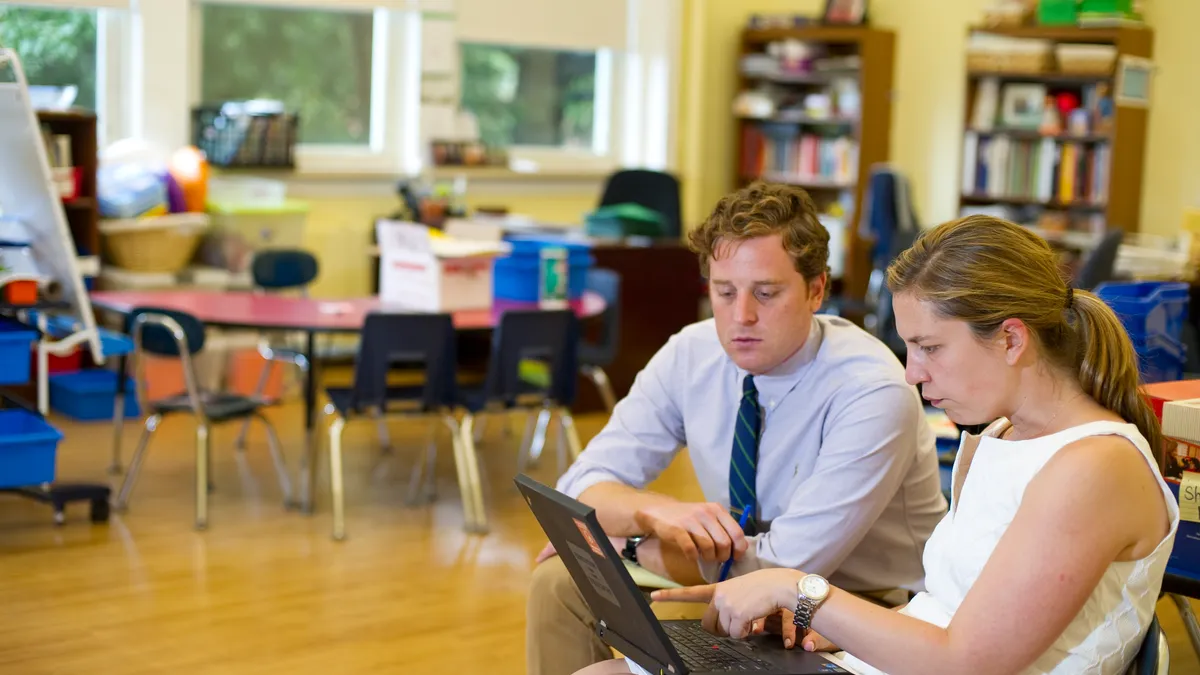Dive Brief:
- Administrators in Greenville County Schools, South Carolina, deploy a team of instructional coaches to schools that have been identified as needing support, District Administration reports. The initiative, called Focused School Support, is designed to help teachers improve during a two- to three-year intervention.
- The initiative started in 2017 after test scores revealed students in high-poverty Title I schools were underperforming. The approach provides targeted, multi-tiered support with monthly meetings with school leaders, instructional coaches and academic specialists.
- After reviewing data, the team conducts classroom observations and instructional modeling and coaches teachers in multi-week cycles. The program starts with teachers who are enthusiastic about receiving coaching, who turn into advocates for the program. Several schools have exited the program and continue to show positive outcomes.
Dive Insight:
Instructional coaches and teacher leaders are playing a larger role in professional development and research indicates it makes a difference. Though schools spend between $74 and $181 million dollars a year on professional development, there is little evidence that shows the PD improves instruction and teachers claim the programs aren’t relevant.
Instructional coaching, on the other hand, may impact the way educators teach reading, science and math. Qualitative evaluations show coaches can help instructors apply standards-based policy into their daily teaching strategy. There is also evidence that instructional coaching can help close the equity gap.
School-based coaches tend to develop strong relationships with the teachers, which is a big factor when it comes to making an impact. District coaches aren’t as likely to develop relationships with the educators, but spend more time on productive coaching activities such as modeling and co-teaching.
Hybrid models include the strengths of both types of coaches. For example, district coaches can come to a school for a specific situation, identify the problem and share information with the school-based coach, experts say.
School-based coaches tend to spend more time working as substitute teachers, rather than as coaches. Research shows that coaches accountable to the district spend most of their time coaching, but don’t make the same type of strong bonds with their teachers.
Studies show that even principals appreciate coaching, with one showing that 70% of principals believe coaching is at least somewhat valuable. Only 66% of principals, however, have participated in a program. A joint union-district coaching program in New York City called Teacher Career Pathways has improved teacher retention, according to 81% of the principals surveyed.







 Dive Awards
Dive Awards





